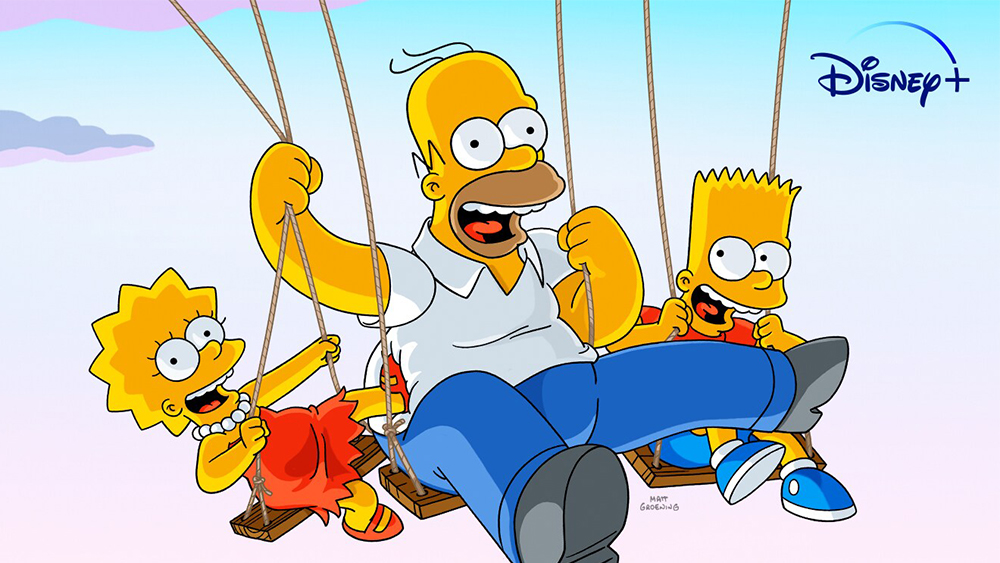
So Hollywood is finally making a move to try to protect intellectual property from generative AI. Disney and Universal have together filed a lawsuit against Midjourney, the company behind one of the most popular AI image generators, over rip offs of characters and art styles from the likes of The Simpsons and Star Wars.
It's far from being the first lawsuit against an AI company for alleged copyright infringement, but it is the first one from major Hollywood studios. Disney and Universal Studios want a jury trial, and they're seeking damages plus an injunction that would immediately halt Midjourney’s operations. The verdict could shape the evolution of generative AI in the creative sectors.

At issue is the training of the Midjourney AI image generator. Some generators like Adobe's Firefly are trained on licensed material, which arguably makes them commercially safe to use. Others were allegedly trained on copyright material scraped from the internet. Some of these attempt to impose restrictions to prevent users from being able to generate imagery in the style of living artists or protected IPs.
Midjourney imposes few restrictions, as images provided in the lawsuit demonstrate. A screenshot from the website's Discover page shows reams of images based on The Simpsons. The document also includes images of many other characters, including Yoda from Star Wars, Elsa from Frozen, Shrek, Minions and Spider-Man, which the claimants say were all created using Midjourney.
Disney, which owns The Simpsons and Star Wars, and Universal Studios, which owns the likes of Shrek and Minions, claim Midjourney has “helped itself to countless” copyrighted works and allows users to create imagery that “blatantly incorporate and copy Disney’s and Universal’s famous characters.” They describe the company as a "quintessential copyright free-rider and a bottomless pit of plagiarism.”
NBCUniversal's general counsel Kim Harris said the company was bringing the action to "protect the hard work of all the artists whose work entertains and inspires us and the significant investment we make in our content.”
AI companies like Midjourney have tended to avoid admitting that they train their models on scraped material while also claiming that they should be able to use copyrighted work under the principle of fair use. There are already lawsuits pending from artists and media companies, but Hollywood had so far held off from taking any action.
That could be because of mixed feelings about AI in the film industry. While studios want to protect their own IPs, they're also interested in using AI to reduce costs and speed up filmmaking. Disney's own Lucasfilm recently left observers stunned by a jawdroppingly bad experimental AI Star Wars film, which it presented as the future of VFX. Meanwhile, proposals to create AI 'digital replicas' have caused conflict in contract negotiations with unions like SAG-AFTRA.
Horacio Gutierrez, Disney’s general counsel, said in a statement when the lawsuit was filed yesterday (Wednesday): “We are bullish on the promise of AI technology and optimistic about how it can be used responsibly as a tool to further human creativity. But piracy is piracy, and the fact that it’s done by an AI company does not make it any less infringing.”
A positive result for Disney and Universal would not mean the end of AI art, but it could mean the end of the digital Wild West attitude taken by Midjourney. AI companies would potentially have to licence training data – and retrain their models – which could be expensive, meaning lower profits or higher prices to use image generators and no more ripoffs of protected IP.
It could also benefit 'commercially safe' AI image generators like Adobe Firefly. Meanwhile, Hollywood studios may continue to develop their own in-house AI image generators trained on their own back catalogues, like what Lionsgate is doing.
Any conclusive results could be a long way off, though. Huge companies like Midjourney and OpenAI, which recently relaxed its controls to allow users to generate Studio Ghibli-like AI images, will surely fight until the last option has been exhausted. They've also been lobbying governments for legislative measures to allow what they've already been doing. OpenAI wrote to the White House in January and in the UK, the government has been trying to push through legislation that would give AI companies access to copyrighted work unless rights holders explicitly opt out.




!["[T]he First and Fifth Amendments Require ICE to Provide Information About the Whereabouts of a Detained Person"](https://images.inkl.com/s3/publisher/cover/212/reason-cover.png?w=600)


